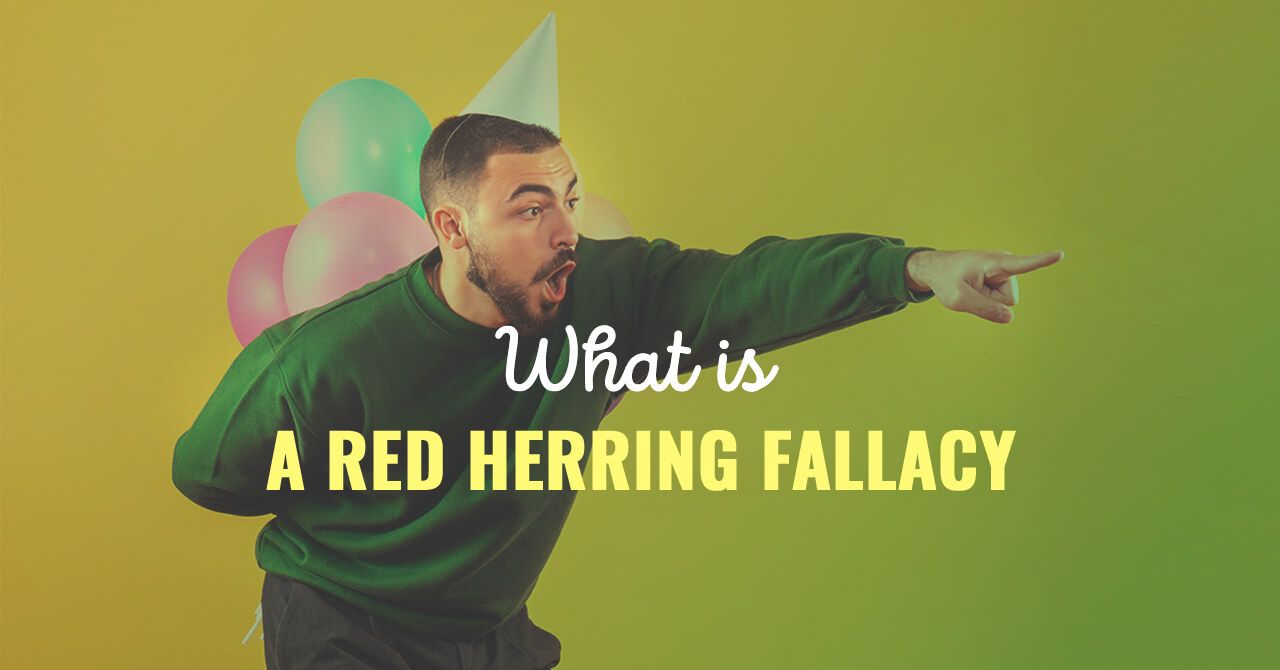
Red Herring Fallacy—Meaning and Use
The red herring fallacy is a logical fallacy that allows irrelevant facts to form our opinions about something.
Red herring fallacy is a funny name for something we encounter all the time, especially when we participate (or just listen to) emotionally charged debates. Politicians, lawyers, life coaches, marketers, public speakers—and ordinary people like you and me—use it frequently. Sometimes they use it on purpose, to persuade their audience into something. But very often, people make this kind of fallacy without any second thought. And it often goes unnoticed, leading to faulty conclusions and not very wise decisions.
Learning how to recognize this fallacy is more than useful. It can help us improve our overall reasoning, communication, and decision-making skills. It can also help us become better writers, especially if we’re into mystery and detective fiction.
What Is Red Herring Fallacy?
The red herring fallacy is a logical fallacy that allows irrelevant facts to form our opinions about something. For example, the sentence “Tommy said Bob hit him last night, but that can’t be true! Bob is the best student in my class.” is an example of the red herring fallacy. Bob’s academic success has nothing to do with his anger management or particular circumstances that might have led him to hit the other boy. The fact that he is a great student is a red herring that draws the speaker’s attention and forms their opinion about the incident.
Intentional use of red herrings is not always a product of dishonest goals. Authors use it as a stylistic device to maintain the level of mystery in their novels. Additionally, creators of exam questions in different fields often use red herrings to test students’ reasoning skills.
Meaning and Origin of the Expression of Red Herring
As you probably know, herrings are not red; they are silvery. And there are no fish species named red herring. But herrings can be prepared in a way that makes them reddish—and pretty smelly, by the way. That is achieved by using particularly strong brine and smoking it afterward.
Legend has it that dog trainers used such prepared fish to distract puppies from finding their original prey. Once they could ignore the red herring poignancy and keep searching for the target, they were ready to be called proper hunting dogs.
In speech and writing, “red herrings” work similarly. They divert our attention from the real topic by introducing a seemingly relevant side fact or issue.
Uses and Examples of Red Herrings in Real Life
A red herring can be an element of diversionary tactic in all situations.
Yeah, honey, that strawberry cake looks tasty. I think we still have some frozen berries at home. Let’s go and make some healthy fruit salad with them!
Oh, this is not the hairstyle that you wanted? But just look at those lovely bangs! They make you look like Audrey Hepburn. Or maybe more like Audrey Tautou, what do you think?
My cat certainly didn’t use your garden as a toilet. She’s a pure-blooded Persian. We paid a fortune to get her.
Okay, he might have cheated on his exam, but have you ever thought about how expensive education is nowadays? Quality tuition is beyond reach for so many hard-working people. Do you think that’s fair?!
Poor results? You’re only firing me because I’m different. Shame on you!
I wasn’t there when that happened. I was walking my dog. He is recovering from an injury, and I have to take him for a nice slow walk twice a day.
Why do you think I shouldn’t do that? Jennie did it, and she’s doing just fine.
Sorry sweetie, we can’t have a dog. Animals spread diseases.


















